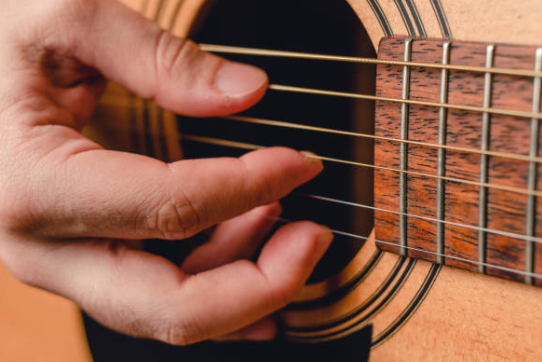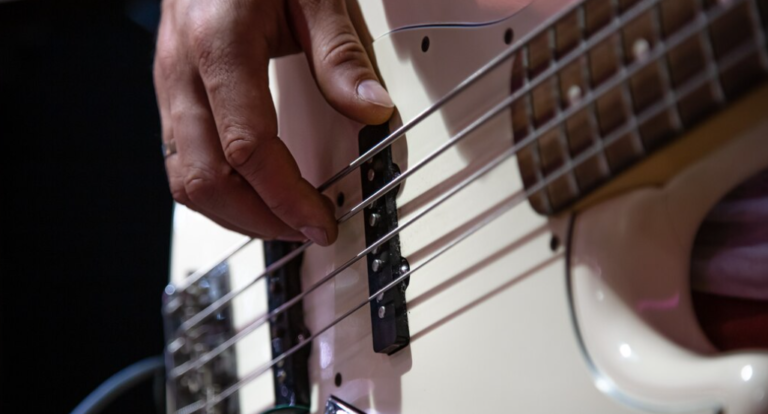How to Choose the Correct Guitar Strings for Beginners – Easy Guide

Choosing the right guitar strings can feel overwhelming for beginners. With so many options available, how do you know which strings are best for your guitar and playing style? The good news is that finding the right strings doesn’t have to be complicated. In this guide, we’ll break down the key factors to consider when selecting guitar strings and recommend options ideal for beginners.
1. Know Your Guitar Type
The first step is identifying the type of guitar you play. The type of strings you need depends on whether you have an acoustic, electric, or classical guitar:
- Acoustic Guitars: Use steel strings specifically designed for acoustics. These strings come in a variety of gauges and materials.
- Electric Guitars: Use steel or nickel-wound strings, which are designed to work with electric pickups.
- Classical Guitars: Use nylon strings, which are softer and ideal for fingerpicking styles.
Using the wrong type of strings can damage your guitar or produce poor sound quality, so be sure to choose strings compatible with your instrument.
2. Understand String Gauge
String gauge refers to the thickness of the strings and is measured in thousandths of an inch. Gauges are typically grouped into three categories:
- Light Gauge Strings: Easier to play and great for beginners because they require less finger strength. However, they produce a softer sound and are more prone to breakage.
- Medium Gauge Strings: Offer a balance between playability and tone. These are a good choice for beginners who are comfortable with slightly more tension.
- Heavy Gauge Strings: Produce a fuller, louder tone but require more finger strength. These are best suited for advanced players or specific styles like heavy strumming or drop tunings.
For beginners, light or medium gauge strings are typically the best starting point.
3. Consider Guitar String Material
The material of the strings impacts both their tone and feel. Here’s a quick overview of common materials:
- Acoustic Guitar Strings:
- Bronze: Bright and clear tone, often used for folk and fingerpicking styles.
- Phosphor Bronze: Warmer tone and longer-lasting, great for general use.
- Silk and Steel: Softer feel and mellow tone, perfect for beginners or those with sensitive fingers.
- Electric Guitar Strings:
- Nickel-Plated Steel: Balanced tone with a mix of warmth and brightness, suitable for most genres.
- Pure Nickel: Warmer tone, ideal for blues and classic rock.
- Stainless Steel: Bright and durable, often used for metal and hard rock.
- Classical Guitar Strings:
- Nylon: Standard for classical guitars, offering a soft feel and warm tone.
- Carbon Fiber: Bright and louder, but less common and more expensive.
4. Think About Your Playing Style
Your playing style also influences the type of strings you should choose:
- Strumming and Chords: Medium or light gauge strings work well for general strumming.
- Fingerpicking: Opt for light gauge or silk and steel strings for a softer touch.
- Lead Guitar and Solos: For electric guitars, lighter gauges make bending and fast playing easier.
- Classical Styles: Stick with nylon strings for their soft feel and responsive tone.
If you’re not sure about your playing style yet, start with versatile strings like phosphor bronze for acoustic or nickel-plated steel for electric guitars.
5. Experiment and Find What Feels Best
Choosing the right strings often comes down to personal preference. Don’t be afraid to try different types and gauges until you find what feels and sounds best for you. Most guitar stores sell individual strings or affordable packs, so you can experiment without breaking the bank.
6. Tips for Maintaining Your Guitar Strings
Once you’ve chosen the right strings, take good care of them to extend their lifespan:
- Clean Your Strings: Wipe them down after each session to remove sweat and dirt.
- Use a String Cleaner: Specially formulated cleaners can help maintain the tone and durability of your strings.
- Store Your Guitar Properly: Keep your guitar in a case or stand to protect the strings from dust and humidity.
- Change Strings Regularly: Even the best strings wear out over time. Change them every 2-3 months (or sooner if you play frequently).
Recommended Guitar Strings for Beginners
Here are some beginner-friendly string recommendations:
- Acoustic Guitars:
- D’Addario EJ16 Phosphor Bronze Light
- Elixir Nanoweb Phosphor Bronze Light
- Martin Silk and Steel Strings
- Electric Guitars:
- Ernie Ball Regular Slinky (10-46)
- D’Addario XL Nickel Wound (Light)
- Fender Super 250 Nickel-Plated Steel (Light)
- Classical Guitars:
- D’Addario EJ45 Pro-Arte Nylon (Normal Tension)
- Savarez 500CJ High Tension Strings
- Augustine Classic Nylon Strings
Final Thoughts
Choosing the right guitar strings is a small but important step in your musical journey. By considering your guitar type, string gauge, material, and playing style, you can find strings that make playing easier and more enjoyable. Remember, there’s no “one-size-fits-all”—so don’t be afraid to experiment until you find your perfect match.
With the right strings, you’ll not only sound better but also feel more motivated to practice and improve.
Interested in taking your guitar skills to the next level? Click the below and book a free lesson with us! We’re committed to helping you express yourself freely on the guitar without endless scales and theory. Happy playing!
Author: Daniel Powers Jr, the founder of Real Brave™, serves as the chief inspiration to thousands of students in the Real Brave music instruction program. He’s also the visionary behind PracticePad™, an online platform for live one-on-one online music lessons, lesson tracking, and scheduling. Beyond his entrepreneurial pursuits, Daniel leads a non-profit organization that provides formerly homeless children with access to music education, making a profound impact on their lives. His unwavering dedication to music, innovation, and education continues to inspire individuals to reach their fullest potential while creating positive change in communities. Follow Real Brave on all the socials:
Find us on Instagram: https://www.instagram.com/realbraveaudio/
Find us on Youtube: https://www.youtube.com/@realbraveinc






